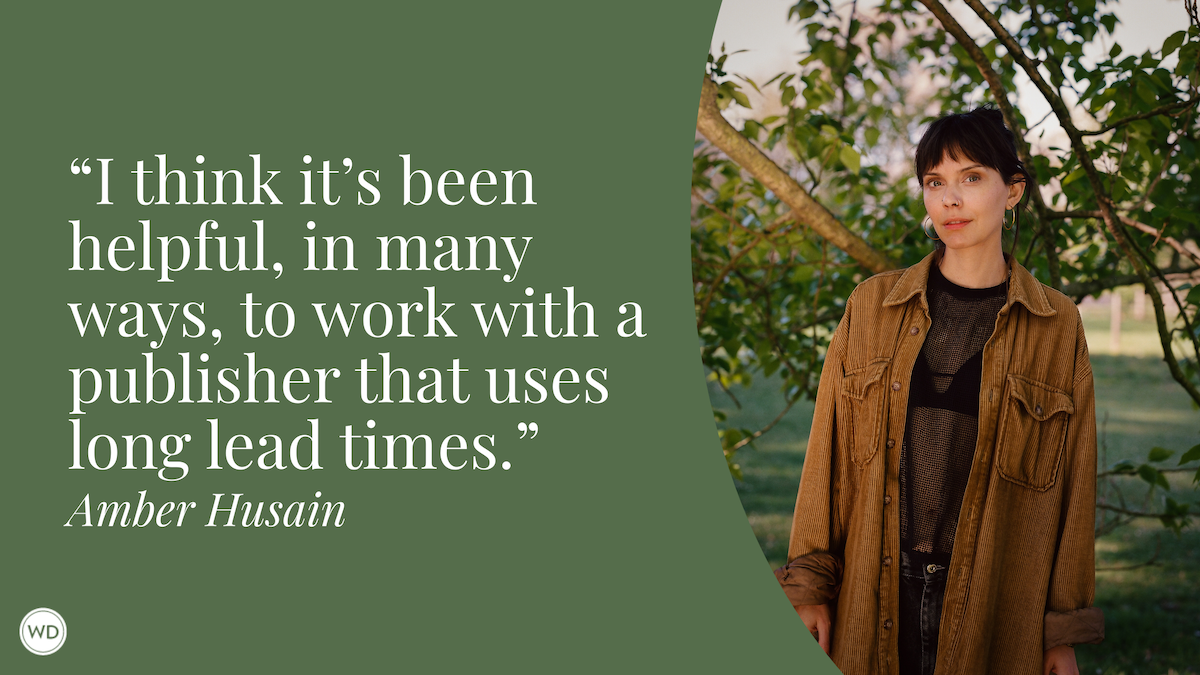Writing Mistakes Writers Make: Writing ALL the Time
The Writer’s Digest team has witnessed many writing mistakes over the years, so this series helps identify them for other writers (along with correction strategies). This week’s mistake is to write all the time without taking a break for other activities.
Everyone makes mistakes—even writers—but that's OK because each mistake is a great learning opportunity. The Writer's Digest team has witnessed many mistakes over the years, so we started this series to help identify them early in the process. Note: The mistakes in this series aren't focused on grammar rules, though we offer help in that area as well.
Rather, we're looking at bigger picture mistakes and mishaps, including the error of using too much exposition, hiding your pitch, or chasing trends. This week's writing mistake writers make is writing all the time without taking a break for other activities.
Writing Mistakes Writers Make: Writing ALL the Time
I may be making a mistake on writing this post, because I know there will be at least a few jokers who quip that Writer's Digest says it's a mistake to write. THAT is not what this writing mistake post is covering. Rather, this writing mistake refers to writers who write all the time at the expense of all other activities.
That is, some writers write at the expense of reading. Others never find time to revise and edit their work, because they're too busy writing. Some avoid submitting their work for publication or promoting their published work if they do get published. And many miss having life experiences, because they're so busy writing.
As someone who writes a lot (just check out my author page), I have no problem with writers who like to write...A LOT. Writing is my favorite way to communicate with the world, and I love playing in all the genres, including nonfiction, fiction, and poetry. I even get a kick out of making some mean step-by-step instructions and writing out some spreadsheet analysis. I think writing is the best.
But even I know I need to take out time from my writing to read the work of other writers (in a variety of disciplines). I also spend a bit of time editing and revising my work and the work of others. The only times I've ever been published is when I take time away from my writing to submit my work to various markets.
If you find that all you're doing is writing (and nothing else), then I've got a few tasks for you try.
Mistake Fix: Try Some Non-writing Activities That Support Your Writing
By all means, keep writing, but let's try cutting out some time to do a few other non-writing activities that support your writing goals. You may be surprised how sometimes taking a break from your writing now and then can actually improve your efforts.
First off, one of the best non-writing activities a writer can do is to read the work of other writers. If you write short stories, pick up a copy of Best American Short Stories (there's also a version for poets and essay writers). Want to be a great copywriter? Then, read other people's copy. And don't be afraid to read genres that you're not writing for inspiration (check out our Author Spotlight page for plenty of great new books and authors to read).
Second, be sure to cut out some time to revise and edit your writing. I'm a proponent of getting that first draft finished before going back to edit, but I know most of my published writing has to go through multiple drafts before I submit it. While I try to hold onto the same energy I had during the draft process, there's something to be said for the clarity in writing that is most often found after a good edit or revision.
Third, submit your writing for publication. If you write poetry, submit groups of three to five poems to poetry publications. Once you've published 20 or so, it may be time to try getting a chapbook or full length book together. Same goes for short stories. If you write novels or nonfiction books, you may want to find a literary agent to help you land a contract with one of the major book publishers. Submitting writing always leads to rejections, but I don't know many writers who got published without taking the time to submit their writing.
Fourth, once you have a piece of writing published, make the time to promote that publication. If you published a poem or article, then the amount of time you spend on promotion may literally be a matter of minutes (to craft that perfect social media post that shares the good news). If you've published a book, you may find it in your best interests to get out to some book fairs, writing conferences, and other events to share your book. Publication is a big deal; be sure to celebrate and share it with your friends, family, and fans.
Finally, take a moment or two from your writing to take care of yourself physically and mentally. Every so often, stand up and stretch out. Go for a walk. Talk with your neighbors. Pet a dog or cat. Experience nature or people watch. Taking time to live a little will not only help you as a person, but it will yield benefits to your writing as well.
So keep up the writing, because writing is good, but don't neglect your reading, editing, submitting, promoting, and living. They all support each other in their own ways, and that's a great thing for writers.
*****
Dive into the world of writing and learn all 12 steps needed to complete a first draft. In this writing workshop you will tackle the steps to writing a book, learn effective writing techniques along the way, and of course, begin writing your first draft.








